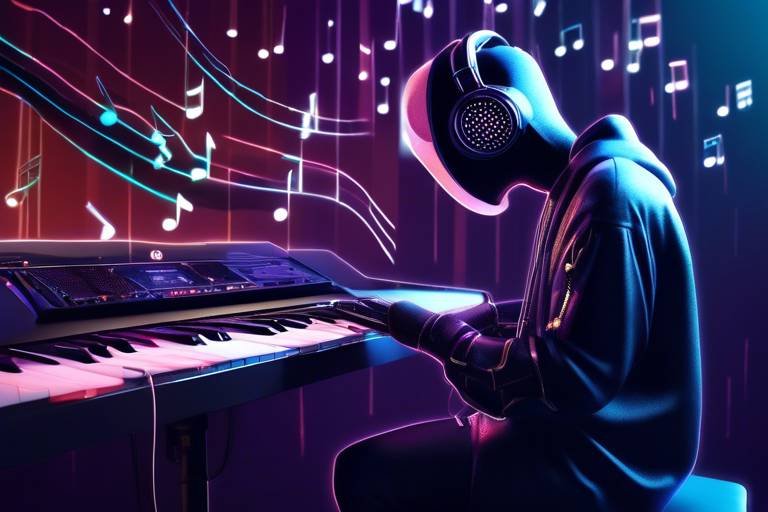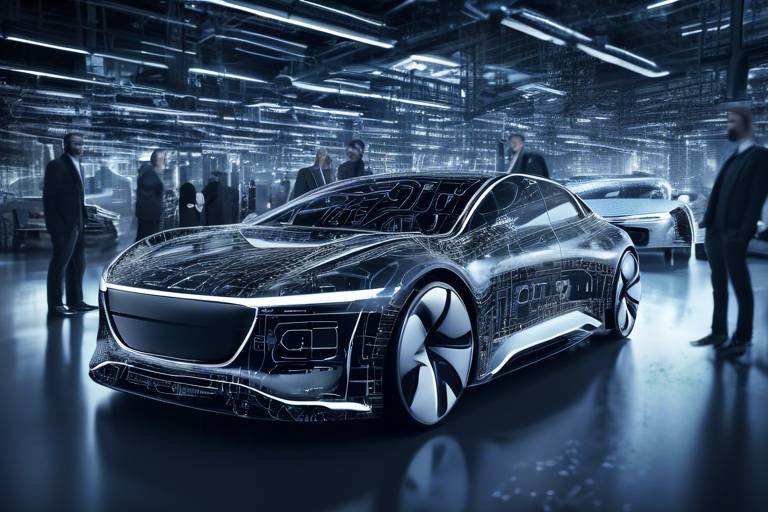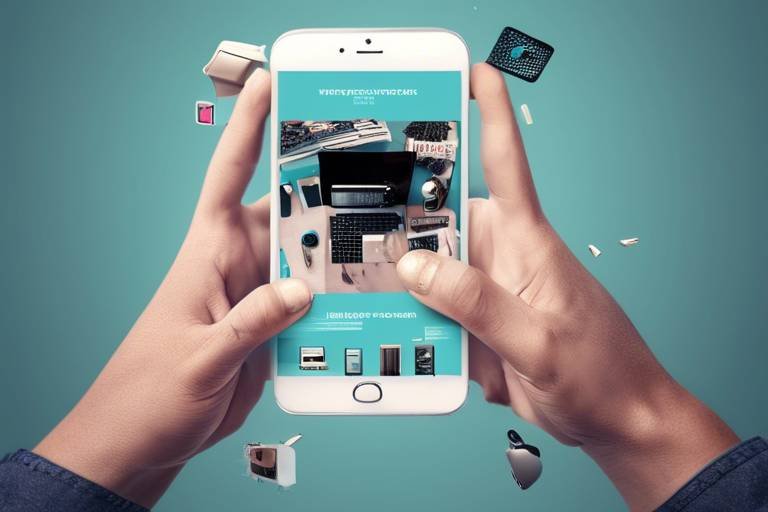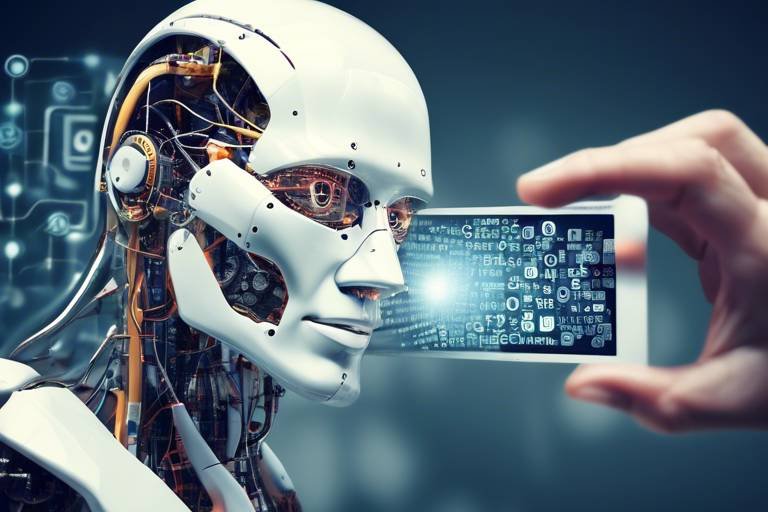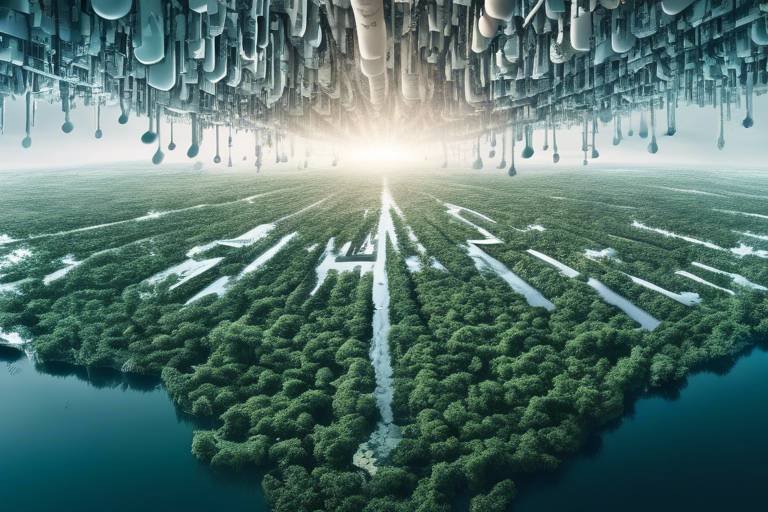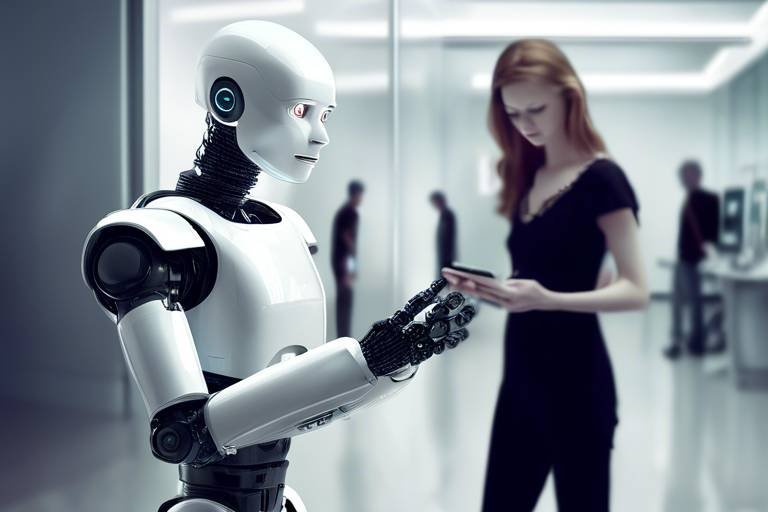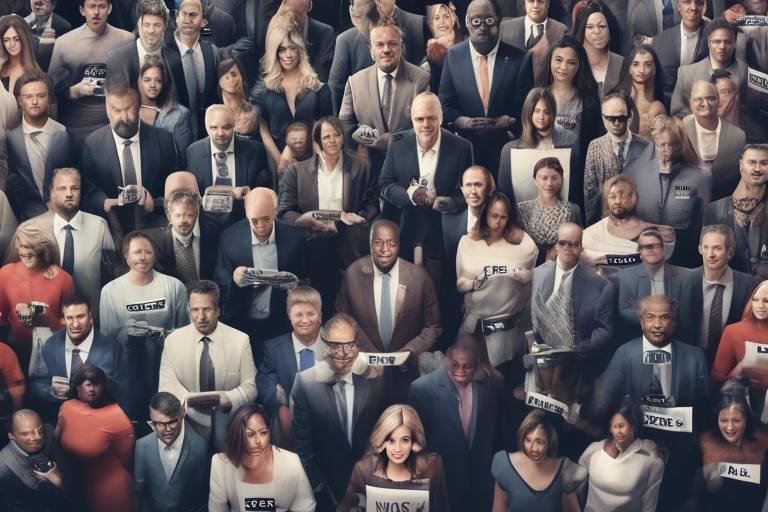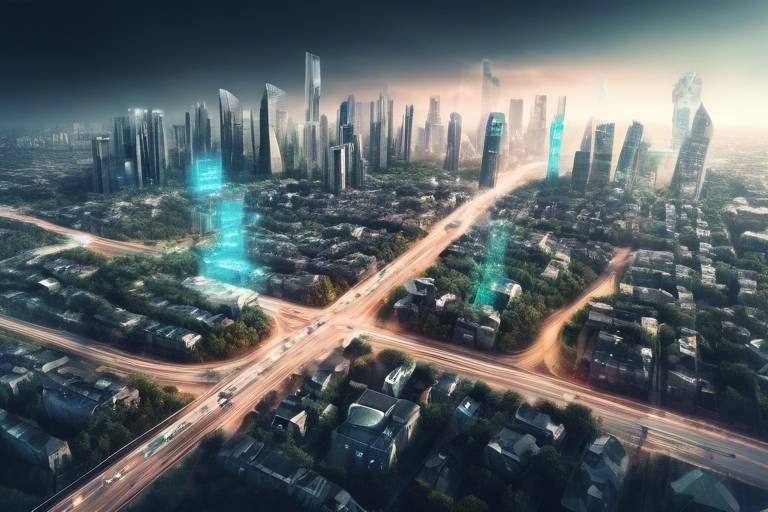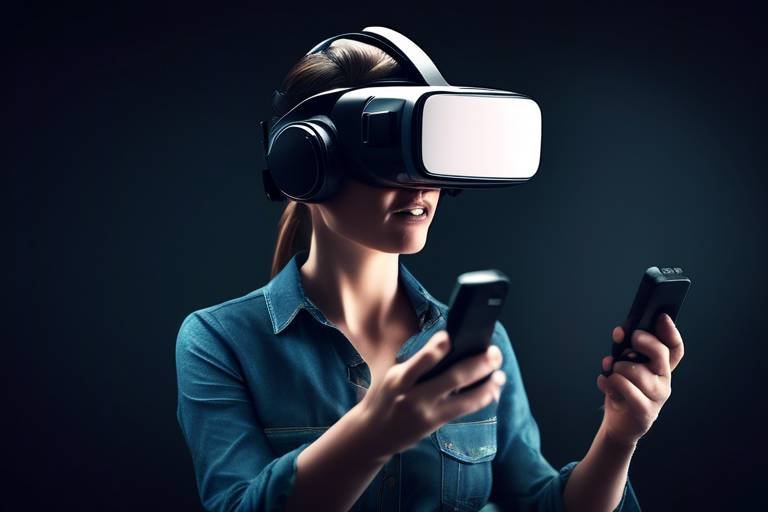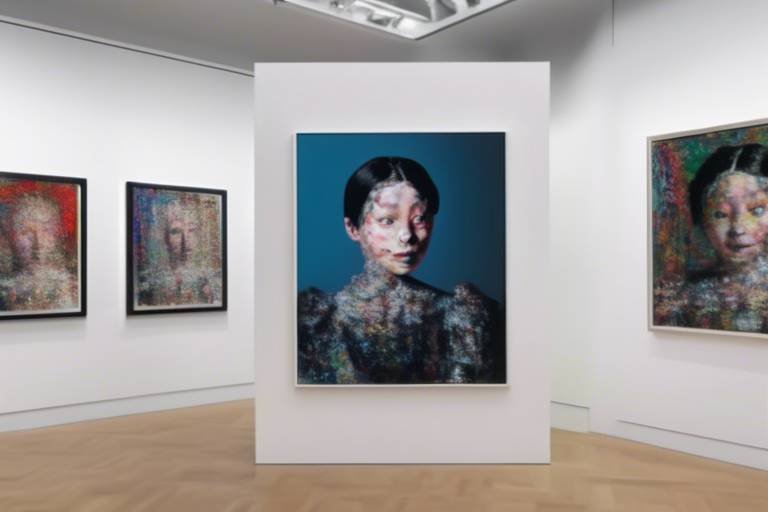AI in Music Creation: The Songwriter of the Future?
Have you ever imagined a world where machines create melodies that tug at your heartstrings? Welcome to the transformative era of artificial intelligence (AI) in music creation! This groundbreaking technology is not just a passing trend; it's reshaping the very foundation of how we compose, produce, and share music. From catchy pop tunes to intricate symphonies, AI is becoming a co-writer, a producer, and even a performer. But what does this mean for traditional songwriters and the music industry as a whole? In this article, we’ll dive deep into the fascinating world of AI in music, exploring its benefits, challenges, and the implications for artists everywhere.
The integration of AI into music creation is gaining momentum, and it's not hard to see why. With advancements in technology, artists now have access to tools that can analyze vast amounts of data, generate unique sounds, and even mimic the styles of their favorite musicians. But what drives this trend? The answer lies in a combination of factors:
- Accessibility: AI tools are becoming more user-friendly, allowing even novice musicians to experiment with music creation.
- Innovation: As artists seek fresh sounds and ideas, AI provides endless possibilities for inspiration.
- Efficiency: AI can streamline the creative process, helping artists produce music faster without sacrificing quality.
In essence, AI is not just a tool; it's a revolutionary force that is redefining the boundaries of creativity in the music industry. Imagine being able to compose a song in minutes, or having an AI partner that can suggest chord progressions and melodies based on your unique style. This is the exciting future that awaits!
As the landscape of music creation evolves, a plethora of AI tools have emerged to assist songwriters. These applications are designed to enhance the songwriting process, providing new avenues for creativity. Some popular tools include:
- AIVA: An AI composer that creates original music for various genres.
- Amper Music: A platform that allows users to create and customize music tracks with ease.
- Jukedeck: An AI tool that generates royalty-free music tailored to specific needs.
These tools not only serve as collaborators but also as sources of inspiration, helping artists break through creative blocks. With AI by their side, songwriters can explore new musical landscapes and push the boundaries of their creativity.
At the heart of many AI music tools are generative algorithms. These sophisticated systems analyze existing compositions and learn from them to create original pieces. Imagine having a virtual muse that can churn out melodies while you focus on crafting lyrics. Generative algorithms can inspire human songwriters, but they also raise thought-provoking questions about creativity and authorship. If a machine creates a song, who truly owns it? Is it the programmer, the user, or the AI itself? These questions challenge our traditional notions of artistry and ownership in music.
One of the most exciting developments in AI music creation is the rise of collaborative AI systems. These platforms allow artists to work alongside AI in real-time, fostering a unique partnership that enhances creativity. Imagine jamming with an AI that can improvise and adapt to your style, instantly providing harmonies or rhythm changes. This collaboration not only enriches the songwriting experience but also blurs the lines between human and machine creativity.
Another fascinating aspect of AI in music is its ability to generate lyrics. AI-driven lyric generation tools can produce text based on specific themes and styles. While some of these tools can create catchy phrases and verses, they often lack the emotional depth and authenticity that human songwriters bring to their work. This raises important questions about the future of lyrical authenticity in a world where machines can churn out verses at lightning speed. Will we lose the soul of songwriting, or will AI simply become another tool in the artist's toolkit?
The integration of AI into songwriting does not come without its challenges. As we embrace this technology, we must also consider its impact on traditional songwriting. Will AI replace human songwriters, or will it serve as a valuable assistant? While AI can analyze trends and generate music, it lacks the personal experiences and emotions that fuel human creativity. The role of a songwriter may evolve, but the essence of storytelling through music remains irreplaceable.
Despite the advantages of using AI in music creation, several challenges loom large. These hurdles include ethical dilemmas, legal complexities, and creative concerns that artists and the industry must navigate.
As AI-generated music becomes more prevalent, significant copyright questions arise. Who owns the rights to a song created by an AI? This part of the conversation is crucial, as it directly affects artists' livelihoods. The complexities of ownership and intellectual property rights concerning AI-created works could have profound implications for the music industry, potentially reshaping how artists protect their creations.
AI can produce music at an unprecedented scale, but this raises concerns about quality versus quantity. While the sheer volume of music generated is impressive, does it compromise artistic value? This debate sparks a broader discussion about what constitutes "real" music and whether AI can truly replicate the emotional depth that human musicians convey. As we move forward, finding a balance between the two will be essential.
Q: Will AI replace human songwriters?
A: While AI can assist in the songwriting process, it lacks the emotional depth and personal experiences that human songwriters bring to their craft.
Q: How does AI generate music?
A: AI uses algorithms to analyze existing music, learning patterns and structures to create original compositions.
Q: Are there copyright issues with AI-generated music?
A: Yes, the rise of AI-generated music raises complex questions about ownership and intellectual property rights that need to be addressed.
Q: Can AI create lyrics that resonate emotionally?
A: While AI can generate lyrics, they often lack the emotional authenticity and depth that human songwriters provide.

The Rise of AI in Music
Artificial intelligence is not just a buzzword anymore; it’s becoming an integral part of the music industry, fundamentally changing how we think about music creation. From the moment you hit play on your favorite song, AI is silently working behind the scenes, influencing everything from composition to production. But what’s driving this remarkable shift? Well, it’s a combination of technological advancements, the growing demand for personalized music experiences, and the creative potential that AI brings to the table.
One of the most exciting aspects of AI in music is its ability to analyze vast amounts of data. Imagine a system that can sift through millions of songs, identifying trends and patterns that even the most seasoned musicians might overlook. This capability allows AI to suggest new melodies, harmonies, and even entire song structures that can inspire human songwriters. It’s like having a virtual bandmate who never runs out of ideas!
Moreover, the accessibility of AI tools has democratized music creation. No longer do you need a fancy studio or years of training to produce a track that sounds professional. With just a laptop and some AI software, anyone can dive into music production. This has opened the floodgates for aspiring artists, creating a rich tapestry of diverse sounds and genres that reflect the unique experiences of a global population. The significance of this trend cannot be overstated; it’s reshaping the music landscape and giving voice to those who may have previously felt unheard.
As we witness this rise of AI in music, it’s crucial to consider its implications. Are we on the brink of a new era where machines become co-songwriters? Or will the human touch remain irreplaceable in the art of songwriting? These questions highlight the complex relationship between technology and creativity. While AI can enhance the creative process, it also challenges our traditional notions of authorship and originality.
In summary, the rise of AI in music is not merely a trend; it’s a transformative force that is reshaping the industry. As artists embrace these technologies, we can expect to see a fusion of human creativity and machine intelligence that could lead to groundbreaking musical innovations. The future of music creation is here, and it’s more exciting than ever!
- What is AI in music? AI in music refers to the use of artificial intelligence technologies to assist in the composition, production, and distribution of music.
- How does AI influence songwriting? AI can analyze trends, suggest melodies, and even generate lyrics, providing songwriters with new creative tools.
- Are AI-generated songs considered original? This is a complex issue, as it raises questions about authorship and copyright, which are still being debated in the music industry.
- Can AI replace human musicians? While AI can assist in the creative process, the emotional depth and personal experiences of human musicians are irreplaceable.

AI Tools for Songwriting
The advent of artificial intelligence has opened up a world of possibilities for songwriters, transforming the way music is created and experienced. Today, numerous AI tools are available that cater to different aspects of the songwriting process, from melody creation to lyric generation. These tools are not just gimmicks; they are powerful allies that can enhance creativity and streamline workflows. Imagine having a virtual collaborator that can churn out ideas while you focus on the emotional core of your music! Isn’t that an exciting prospect?
One of the most fascinating developments in this space is the emergence of generative music algorithms. These sophisticated systems analyze vast amounts of musical data to create original compositions. They don't just mimic existing songs; they can produce entirely new melodies that can inspire human songwriters. For instance, platforms like AIVA and Amper Music allow users to input certain parameters—like mood, style, or instruments—and generate unique tracks in seconds. This capability raises intriguing questions about the nature of creativity: if an AI can compose a beautiful piece of music, what does that mean for human artists?
Moreover, collaborative AI systems are gaining traction, allowing artists to work alongside AI in real-time. Tools such as Endlesss and JukeBox facilitate a seamless interaction between human creativity and machine learning. These platforms not only enable musicians to jam with AI but also allow for the co-creation of songs, blending human emotion with algorithmic precision. This collaboration can lead to unexpected and delightful outcomes, enhancing the songwriting experience. Picture this: you’re strumming your guitar, and the AI suggests a chord progression that perfectly complements your melody. It’s like having a bandmate who never runs out of ideas!
Then we have AI-driven lyric generation tools that can produce text based on themes and styles. Services like OpenAI's GPT-3 and LyricFind can craft lyrics that resonate with specific emotions or narratives. While these tools can generate catchy and coherent lyrics, they also raise questions about authenticity and emotional depth. Can a machine truly understand the human experience to write meaningful lyrics? The effectiveness of these tools varies, and while they can spark inspiration, they may lack the nuanced touch that comes from lived experiences.
As we embrace these technologies, it’s essential to remember that they are just that—tools. They can assist in the creative process but should not replace the unique touch that human songwriters bring to their art. The music industry is evolving, and with it, the role of songwriters is changing. The challenge lies in finding a balance between leveraging AI's capabilities and maintaining the authenticity that makes music resonate with listeners.
So, whether you are a seasoned musician or an aspiring songwriter, exploring these AI tools can open up new creative avenues. They are not just about efficiency; they are about expanding the horizons of what music can be. Are you ready to take your songwriting to the next level with the help of AI?

Generative Music Algorithms
Generative music algorithms are at the forefront of the AI revolution in music creation, acting as the digital composers of our time. These algorithms leverage complex mathematical models and machine learning techniques to produce original compositions that can range from soothing melodies to intricate symphonies. Imagine having a personal assistant who not only understands your musical preferences but can also generate a unique song tailored just for you in seconds! This is the power of generative music algorithms.
At the heart of these algorithms lies a combination of data analysis and creativity. By analyzing vast databases of existing music, these systems learn patterns, structures, and styles that define different genres. They can then mimic these elements to create new pieces that resonate with listeners. For example, a generative algorithm trained on classical music can produce a piece that sounds like it was composed by Beethoven himself, while another trained on pop music might create a catchy tune reminiscent of today's chart-toppers.
But how exactly do these algorithms work? Typically, they utilize techniques such as:
- Neural Networks: These are designed to recognize patterns in data and can generate music by predicting the next note based on previous ones.
- Markov Chains: A statistical model that uses probabilities to determine the likelihood of a sequence of notes, allowing for the creation of melodies that flow naturally.
- Evolutionary Algorithms: These simulate the process of natural selection, where the best musical pieces are selected and combined to create new variations.
While the potential of generative music algorithms is exciting, they also raise important questions about creativity and authorship. If an algorithm creates a song, who owns the rights to that music? Is it the programmer, the user who prompted the creation, or the AI itself? These questions challenge our traditional understanding of what it means to be a songwriter.
Moreover, the integration of these algorithms into the creative process can serve as a source of inspiration for human musicians. Imagine sitting down with your guitar, and instead of staring at a blank page, you have an AI-generated melody playing in the background. This can spark new ideas, leading to collaborations between human creativity and machine intelligence. The possibilities are endless!
In conclusion, generative music algorithms are not just tools; they represent a new frontier in music creation. They challenge our notions of creativity while offering exciting opportunities for collaboration and innovation. As technology continues to evolve, it will be fascinating to see how these algorithms shape the future of music and the role of human songwriters in this brave new world.

Collaborative AI Systems
Imagine sitting in a cozy studio, guitar in hand, with an AI buddy by your side, ready to brainstorm the next big hit. are changing the landscape of music creation, allowing artists to engage with artificial intelligence in a way that's both innovative and inspiring. These systems act as creative partners, providing suggestions, generating melodies, and even harmonizing in real-time as human musicians play. It's like having a virtual jam session, where the only limit is your imagination!
One of the most exciting aspects of collaborative AI systems is their ability to adapt to the artist's style and preferences. By analyzing previous works, these systems can learn what resonates with the musician and offer tailored suggestions that align with their unique sound. This personalized approach can lead to a more fluid and dynamic songwriting process, where ideas flow freely between the artist and the AI. It’s not just about replacing human creativity; it’s about enhancing it.
Moreover, these systems can also serve as a source of inspiration. For instance, when an artist feels stuck or uninspired, they can look to their AI collaborator for fresh ideas. The AI can generate multiple variations of a melody or a chord progression, allowing the artist to explore new creative avenues. This is particularly beneficial in genres where experimentation is key, such as electronic music or pop. The possibilities seem endless, and the collaboration can lead to unexpected and delightful outcomes.
However, it’s essential to acknowledge that while AI can be a fantastic collaborator, it doesn’t replace the human touch. The emotional depth and personal experiences that artists bring to their music are irreplaceable. Collaborative AI systems are tools that can enhance the creative process, but they should be viewed as partners rather than replacements. The true magic happens when human emotion and AI innovation come together to create something beautiful.
To illustrate the effectiveness of collaborative AI systems, let's take a look at a few popular platforms that have made waves in the music industry:
| AI Tool | Description | Key Features |
|---|---|---|
| AIVA | An AI composer that creates music for various genres. |
|
| Amper Music | A platform that enables users to compose and produce music quickly. |
|
| OpenAI's MuseNet | A deep learning model that can generate songs across a variety of genres. |
|
In conclusion, collaborative AI systems are paving the way for a new era in music creation, where artists can leverage technology to push the boundaries of their creativity. By embracing these tools, musicians can explore uncharted territories in songwriting, leading to fresh sounds and innovative compositions. The future of music is not just about humans or machines; it’s about the synergy between the two, creating a harmonious blend that resonates with audiences worldwide.
- What are collaborative AI systems? Collaborative AI systems are tools that allow artists to work alongside artificial intelligence, enhancing the creative process through real-time collaboration and idea generation.
- How do AI systems learn from artists? AI systems analyze an artist's previous works to understand their style and preferences, enabling them to provide tailored suggestions that align with the artist's unique sound.
- Can AI replace human creativity in music? No, AI is designed to enhance human creativity, not replace it. The emotional depth and personal experiences that artists bring to their music are irreplaceable.
- What are some popular AI tools for music creation? Some popular AI tools include AIVA, Amper Music, and OpenAI's MuseNet, each offering unique features to assist in music composition and production.

AI in Lyrics Generation
The advent of artificial intelligence has brought about a revolutionary change in the way we approach songwriting, particularly in the realm of lyrics generation. Imagine having a tool that can churn out lyrics based on a simple prompt or theme you provide. Sounds like magic, right? Well, it’s happening now! AI-driven lyric generation tools utilize vast datasets of existing lyrics and linguistic patterns to produce text that can mimic various styles and genres. These tools can be a songwriter's best friend, offering inspiration when creativity runs dry.
However, while these AI systems can generate catchy phrases and intriguing verses, they often lack the emotional depth and personal touch that human songwriters bring to their work. For instance, an AI might generate a line that rhymes perfectly and fits a specific meter, but can it convey the raw emotion of heartbreak or the joy of love? This is where the challenge lies. It raises the question: can AI truly understand the human experience, or is it merely a clever mimic?
To better understand how AI tools operate in this space, let’s explore a few key features:
- Theme-Based Generation: Many AI lyric generators allow users to input themes or keywords, producing lyrics that align with the specified subject matter.
- Style Adaptation: Some tools can mimic the lyrical style of famous artists, enabling songwriters to experiment with different voices and genres.
- Collaborative Features: Certain platforms enable real-time collaboration between human songwriters and AI, fostering a creative partnership that blends human intuition with machine efficiency.
Despite these advantages, there are limitations to consider. AI-generated lyrics may sometimes feel generic or lack the nuanced storytelling that human authors excel at. This brings us to the implications for lyrical authenticity. As songwriters increasingly turn to AI for inspiration, we must ponder whether the lines between human and machine-generated content are becoming blurred. Is an AI-generated song less valuable than one crafted by a human hand?
Moreover, there’s the issue of originality. With AI drawing from existing works to create new lyrics, how do we define what is truly original? As we navigate this exciting yet complex landscape, it’s essential for artists to find a balance between leveraging AI tools for inspiration and maintaining their unique voice and storytelling ability.
In conclusion, AI in lyrics generation offers a fascinating glimpse into the future of songwriting. While it can serve as a powerful ally in the creative process, the essence of what makes music resonate—authenticity, emotion, and personal experience—remains firmly in the hands of human songwriters. The challenge lies in harnessing AI’s capabilities while ensuring that the heart and soul of music continue to thrive.
- Can AI-generated lyrics be published? Yes, but it’s important to verify the originality of the content and ensure it doesn’t infringe on existing copyrights.
- Are AI tools reliable for songwriting? AI tools can be great for inspiration and generating ideas, but they should complement, not replace, the human creative process.
- What are some popular AI lyric generators? Tools like OpenAI's GPT-3, Jukedeck, and Amper Music are popular choices among songwriters.

Impact on Traditional Songwriting
The integration of artificial intelligence into the world of music creation is not just a technological advancement; it's a cultural shift that challenges the very essence of what songwriting means. Traditionally, songwriting has been a deeply personal and human experience, often rooted in emotions, stories, and unique perspectives. However, as AI tools become more prevalent, they introduce a new dynamic that can alter the landscape of songwriting.
One of the most significant impacts of AI on traditional songwriting is the way it influences the creative process. Imagine a world where songwriters are no longer solely responsible for crafting melodies and lyrics. Instead, they can collaborate with AI systems that suggest chord progressions or generate lyrical ideas based on a few keywords. This collaboration can lead to an explosion of creativity, allowing artists to explore new musical territories that they might not have considered before. For instance, generative music algorithms can create unique soundscapes that inspire songwriters to write lyrics that fit a particular mood or vibe.
However, this shift raises questions about the role of the human songwriter. Are they becoming mere curators of AI-generated content, or do they still hold the reins of creativity? While AI can assist in generating ideas, it lacks the emotional depth and personal experiences that human songwriters bring to their work. The nuances of a heartbreak ballad or an anthem of triumph are deeply rooted in human experience, something that AI cannot fully replicate. Thus, while AI can enhance the songwriting process, it cannot replace the authenticity that comes from human emotion.
Moreover, the rise of AI in music creation could lead to a broader democratization of music production. With accessible AI tools, aspiring songwriters can experiment with music creation without needing extensive training or resources. This newfound accessibility can lead to a surge in diverse musical voices and styles, enriching the music landscape. However, it also raises concerns about the oversaturation of the market. If everyone can create music with the help of AI, how do we distinguish between genuine artistry and algorithmically generated noise?
In essence, the impact of AI on traditional songwriting is a double-edged sword. On one hand, it offers exciting possibilities for creative exploration and collaboration. On the other hand, it challenges the very foundation of what it means to be a songwriter. As we navigate this new terrain, it's crucial for artists to find a balance between embracing technology and preserving the deeply human aspects of music creation.
- Will AI replace human songwriters? While AI can assist in the songwriting process, it cannot replace the emotional depth and personal experiences that human songwriters bring to their work.
- How can AI tools enhance the songwriting process? AI tools can suggest chord progressions, generate lyrical ideas, and create unique soundscapes, allowing songwriters to explore new creative avenues.
- Are there concerns about music oversaturation due to AI? Yes, with the accessibility of AI tools, there is a risk of oversaturation in the music market, making it challenging to distinguish genuine artistry from algorithmically generated content.
- What is the future of traditional songwriting? The future of traditional songwriting will likely involve a blend of human creativity and AI assistance, fostering new forms of collaboration and expression.

Challenges of AI in Music
The integration of artificial intelligence in music creation is not without its hurdles. While the technology offers exciting possibilities, it also presents a range of challenges that artists, producers, and the music industry must confront. One of the most pressing issues is the ethical implications surrounding the use of AI in creative processes. For instance, as AI tools become more advanced, questions arise about the authenticity of music produced with their assistance. Can a song created by an algorithm truly capture the emotional depth of human experience? This leads us to ponder the very essence of creativity and artistry.
Moreover, the legal landscape surrounding AI-generated music is still murky. As AI systems generate compositions, the question of copyright and ownership becomes increasingly complicated. Who owns a song created by an AI? Is it the programmer, the user of the AI, or does the AI itself hold some rights? These questions are crucial as they can have significant implications for artists seeking to protect their work. Without clear regulations, artists may find themselves in precarious situations, navigating a convoluted web of intellectual property rights.
Another challenge lies in the balance between quality and quantity. AI can churn out music at an astonishing rate, leading to an overwhelming volume of content. While this may seem beneficial, it raises concerns about the artistic value of such music. Is there a risk that the music industry could become saturated with low-quality tracks, diminishing the overall appreciation for genuine artistry? This dilemma prompts a broader discussion about what constitutes "good" music and how we define artistic merit in an age dominated by algorithms.
Furthermore, the emotional connection that listeners often seek in music may be jeopardized by AI's involvement. Music has always been a reflection of human experience, emotions, and storytelling. If machines are crafting the narratives, can they truly resonate with audiences on a deeper level? This question is particularly pertinent as we consider the role of human songwriters in a landscape increasingly populated by AI-generated content. The fear of losing the human touch in music creation looms large, emphasizing the need for a delicate balance between technology and tradition.
In addition to these concerns, the industry must also address the potential for job displacement. As AI systems become more capable of performing tasks traditionally handled by human songwriters, producers, and musicians, there is a growing anxiety about the future of creative employment. While AI can serve as a powerful tool for enhancing creativity, it is essential to ensure that it does not replace the unique contributions of human artists. The challenge lies in finding a way for AI to complement rather than compete with human creativity.
In summary, while AI presents exciting opportunities for music creation, it also brings forth significant challenges that the industry must navigate. From ethical dilemmas and legal complexities to concerns about quality and job security, the road ahead is fraught with questions that require careful consideration. As we move into this new era of music, it will be crucial to strike a balance that honors both technological advancements and the irreplaceable human element in artistry.
- What are the main challenges of using AI in music creation?
The main challenges include ethical implications, copyright and ownership issues, quality versus quantity concerns, potential job displacement, and the risk of losing emotional depth in music. - Can AI-generated music be copyrighted?
Currently, the copyright status of AI-generated music is complex and varies by jurisdiction. There is ongoing debate about who owns the rights to such works. - Will AI replace human songwriters?
While AI can enhance the songwriting process, it is unlikely to completely replace human creativity. The unique emotional connection that human artists provide is irreplaceable.

Copyright and Ownership Issues
The advent of artificial intelligence in music creation has sparked a whirlwind of debate regarding copyright and ownership issues. As AI systems become more capable of generating music autonomously, the question arises: who owns the rights to these creations? Is it the programmer who designed the AI, the user who prompted the AI to create, or does the AI itself hold any claim? These questions are not merely academic; they have profound implications for artists and the music industry as a whole.
To understand the complexity of these issues, we must first look at the traditional framework of copyright laws. Typically, copyright protects original works of authorship, granting the creator exclusive rights to their use and distribution. However, when an AI generates a piece of music, it complicates the notion of authorship. For instance, if a songwriter inputs specific parameters into an AI tool and the AI produces a unique song, can the songwriter claim copyright over that song? Or does the AI’s algorithmic process negate the traditional understanding of creative authorship?
Many experts argue that the current copyright laws are ill-equipped to handle the nuances of AI-generated works. In fact, a recent survey indicated that over 70% of music industry professionals believe that new legislation is necessary to address the challenges posed by AI. This raises the critical question of whether AI should be considered a tool or a creator in its own right. If we consider AI merely as a tool, then the human operator retains ownership. However, if we begin to view AI as a creator, we enter a legal gray area that could redefine the very essence of copyright.
Another significant aspect to consider is the potential for plagiarism. AI systems often learn from vast datasets of existing music, which raises concerns about the originality of AI-generated works. If an AI generates a song that closely resembles an existing piece, who is liable? The fear of unintentional copyright infringement looms large, and artists must navigate these murky waters with caution.
To further illustrate these complexities, let’s look at a hypothetical scenario in a table format:
| Scenario | AI Involvement | Ownership Implications |
|---|---|---|
| Songwriter uses AI to generate melody | AI generates melody based on input | Songwriter claims ownership |
| AI autonomously composes a song | AI operates without human input | Legal ambiguity; who owns the rights? |
| AI creates a song similar to existing work | AI trained on existing music | Potential copyright infringement issues |
As the industry grapples with these questions, it's clear that a collaborative approach between artists, legal experts, and technologists is essential. The future of music creation may depend on developing new frameworks that acknowledge the role of AI while protecting the rights of human creators. In this evolving landscape, staying informed and adaptable will be crucial for songwriters and music producers alike.
- Who owns the rights to music created by AI? The ownership of AI-generated music is still a legal gray area, with many experts advocating for new laws to clarify these issues.
- Can AI infringe on copyright? Yes, if an AI generates music that closely resembles existing copyrighted works, it could lead to copyright infringement.
- What should artists do to protect their work? Artists should stay informed about copyright laws and consider legal advice when using AI tools for music creation.

Quality vs. Quantity
In the realm of music creation, the debate between quality and quantity has never been more pronounced, especially with the advent of AI technologies. On one hand, AI can churn out tracks at a staggering rate, flooding the market with an abundance of music. This capability raises an intriguing question: does more music mean better music? The answer is not as straightforward as one might think.
Imagine walking into a massive library filled with countless books, but only a few of them are truly captivating. Similarly, while AI can produce a high volume of songs, the artistic depth and emotional resonance of these tracks can sometimes be lacking. Many music enthusiasts and industry veterans argue that the essence of songwriting lies in its ability to connect with listeners on a deeper level—a quality that can often be overlooked in the race to produce more.
Moreover, the sheer volume of AI-generated music can lead to a phenomenon known as auditory fatigue. With so many tracks available, listeners may find it challenging to sift through the noise to discover the gems that genuinely resonate with them. This situation raises concerns about the value of artistry in a world where algorithms dictate trends and preferences.
To illustrate this point, consider the following table that compares the attributes of AI-generated music versus human-created music:
| Attribute | AI-Generated Music | Human-Created Music |
|---|---|---|
| Production Speed | High | Moderate |
| Emotional Depth | Variable | High |
| Originality | Algorithmically Driven | Creative Expression |
| Market Saturation | High | Moderate |
While AI can produce music at an unprecedented scale, the challenge lies in maintaining a balance between quantity and quality. As the music industry grapples with this reality, songwriters may find themselves at a crossroads. Should they embrace AI as a tool to enhance their creative process, or should they remain steadfast in their commitment to traditional songwriting methods that prioritize emotional impact and artistic integrity?
Ultimately, the evolution of music creation will likely see a fusion of both worlds. Artists might leverage AI to generate ideas or explore new sounds while ensuring the final product reflects their unique voice and vision. The question remains: as we embrace the future of music, how do we ensure that the art form retains its soul amidst the technological advancements?
Frequently Asked Questions
- What is AI's role in music creation?
AI is revolutionizing music creation by assisting songwriters in composing, producing, and distributing music. It offers tools that enhance creativity and streamline the songwriting process, allowing artists to explore new musical landscapes.
- How do generative music algorithms work?
Generative music algorithms utilize AI to create original compositions. They analyze vast amounts of music data to generate unique melodies and harmonies, often serving as inspiration for human songwriters while raising questions about the nature of creativity.
- Can AI tools replace human songwriters?
While AI tools can assist in the songwriting process, they are not likely to replace human songwriters. The emotional depth and personal experiences that humans bring to music creation are irreplaceable, making collaboration between AI and artists more beneficial.
- What are the ethical concerns surrounding AI in music?
Ethical concerns include copyright issues, ownership rights, and the potential for AI to produce music that lacks authenticity. As AI-generated content becomes more prevalent, navigating these challenges will be crucial for artists and the industry.
- How does AI affect the quality of music?
AI can produce music at an unprecedented scale, but this raises questions about quality versus quantity. While some AI-generated music can be impressive, there are concerns that the sheer volume may dilute artistic value and authenticity.
- What are collaborative AI systems?
Collaborative AI systems enable artists to work alongside AI in real-time, fostering a unique creative partnership. These systems enhance the songwriting experience by allowing for immediate feedback and exploration of musical ideas together.
- Are AI-generated lyrics effective?
AI-driven lyric generation tools can create lyrics based on specified themes and styles. While they can produce interesting results, they often lack the emotional depth and nuance that come from human lyricists, raising questions about lyrical authenticity.
- What challenges do artists face with AI in music?
Artists face several challenges, including navigating copyright and ownership issues, maintaining artistic quality, and adapting to the evolving landscape of music creation influenced by AI technologies.

